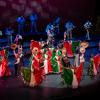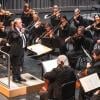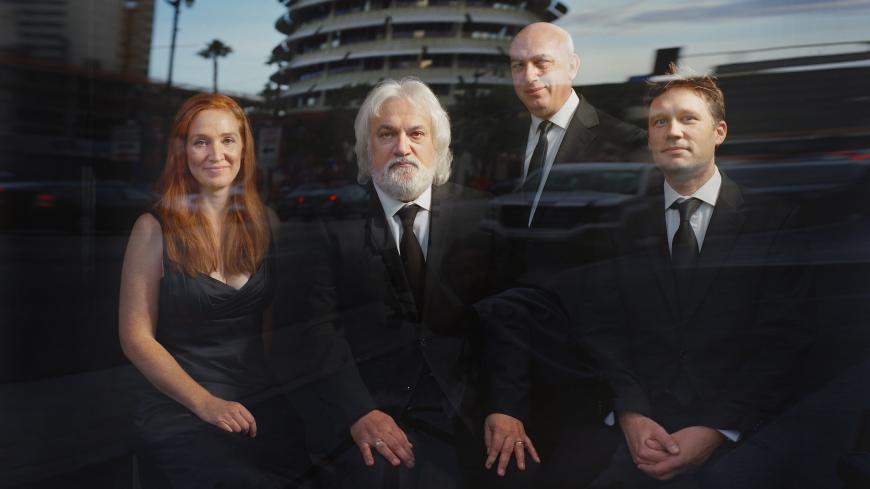
Forces and ambiences converged, somehow with a seasonal spin, when the New Hollywood String Quartet closed its truncated 2021 season with the third of its “Vienna Holiday Concerts” series at the Huntington Library on Sunday afternoon. The Huntington, with its pristine chamber music-friendly Rothenberg Hall venue, is one of Los Angeles’ more elegant pieces of real estate and a fine destination location for chamber music. The Viennese connection naturally drifts into the collective mind come Christmas/New Year’s time, although the focus here was on Mozart and Schubert, two sides of the classical/romantic divide, rather than the Johann Strauss clan.
Still, Sunday’s program was much more than an idle or lighthearted “holiday concert” diversion, blessed as it was with sublime renderings of Mozart’s Quartet No. 19 in C Major (“Dissonance”) and Schubert’s “Trout” Piano Quintet. Vienna would be proud, or at least give a slight Austrian nod of approval.
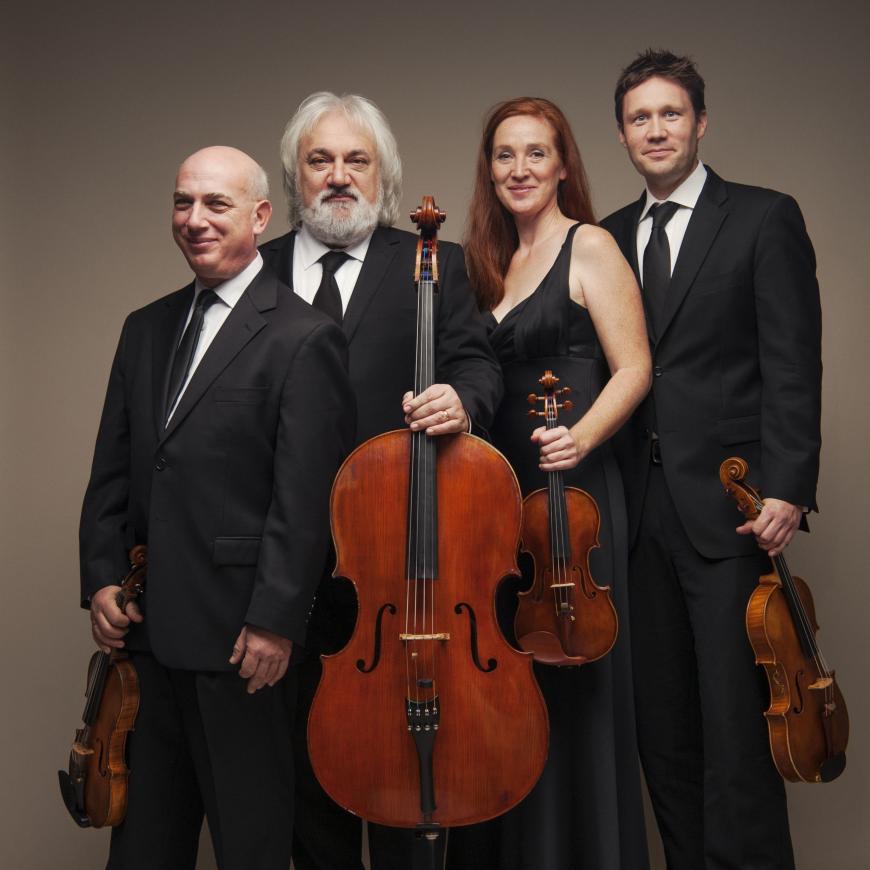
NHSQ, whose “Hollywood” link may refer mostly to its general geographic status and the fact that its members have worked heavily in the film music orbit, was founded in 2001 and is an heir to the respected older Hollywood String Quartet. At The Huntington, the group exuded a refined and luminous ensemble presence in keeping with its growing reputation, 20 years into its history.
The quartet — violinists Tereza Stanislav and Rafael Rishik, violist Robert Brophy, and cellist Andrew Shulman — showed its calm-yet-firm musical command at the outset of the “Dissonance” Quartet. They sensitively conveyed the almost disorienting gravitas of its opening, before bounding into the sprightlier style of the dual-personality opening movement proper. Lingering memories of that startling dark beginning casts a shadow on what’s to come, as neatly laid out by the Quartet, from the dusky glow of its Andante cantabile to the unruffled exuberance of its finale. In all, the Quartet summoned a persuasive balance of classical-flavored polish and delicate emotional coloration.
Violinist Stanislav exited stage left after the Mozart, supplanted by the addition of contrabassist David Grossman and impressive 29-year-old pianist Rodolfo Leone (replacing originally slated Fabio Bidini, who was called away to Germany). The reconstituted ensemble, with its doubled-up low end (optimized in such moments as the “ba-DUM” gestures in the Andante) and its fairly democratically integrated pianistic protagonist’s voice, properly thickened the concert’s plot in its second half, even if deviating from a strictly string quartet focus.
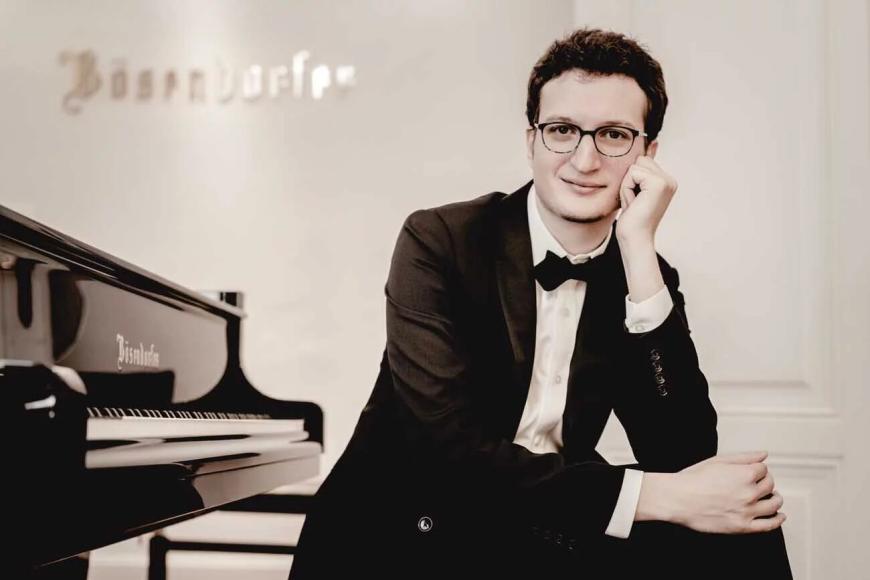
Those seeking a rebolstering of holiday spirits, in a time not nearly as carefree as the world might have hoped, can find solace in the “Trout,” telegraphing its generally vibrant and smartly dressed character in the bright-colored vigor of its opening Allegro Vivace. Its famed midpoint Scherzo projects an essence of ebullience, captured here with nuance in tow. Leone rose easily to the occasion and melded into the ensemble, in a piece requiring careful listening and flashes of individual piano display, as in the final movement.
In that finale, a restrained energy is ever poised to unleash itself in brief bursts, culminating in the last, valedictory three notes, as emphatic and unfettered as the opening fanfare chord of the piece. The group demonstrated a sure understanding of what makes this score work, conjuring up a moving performance.
Entering into 2022, Vienna remains on the NHSQ brain, as it prepares for a “Summer in Vienna Chamber Music Festival” in the same space, with Schubert and Viennese transplant Beethoven in the spotlight.


